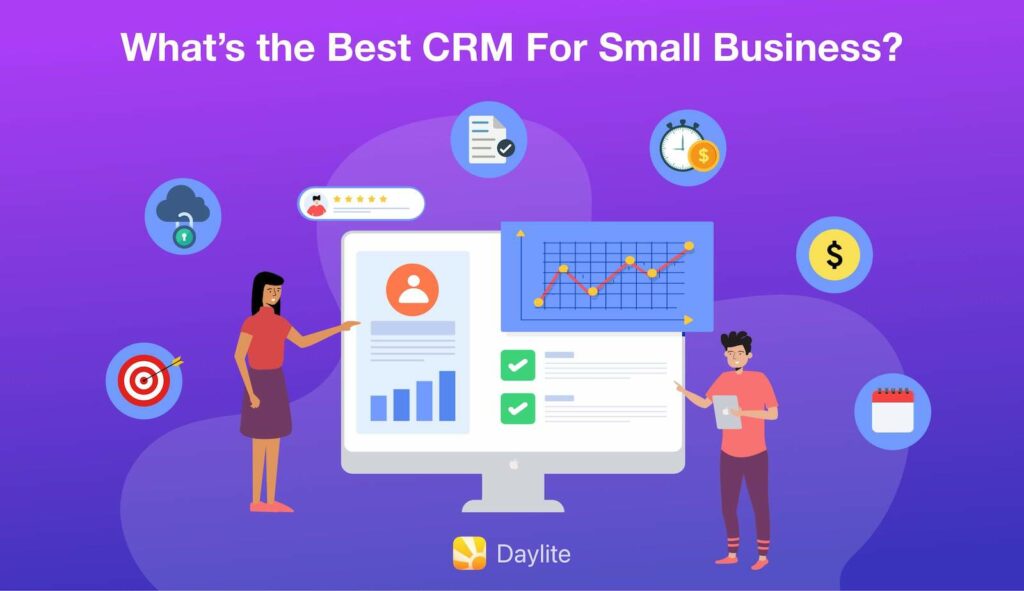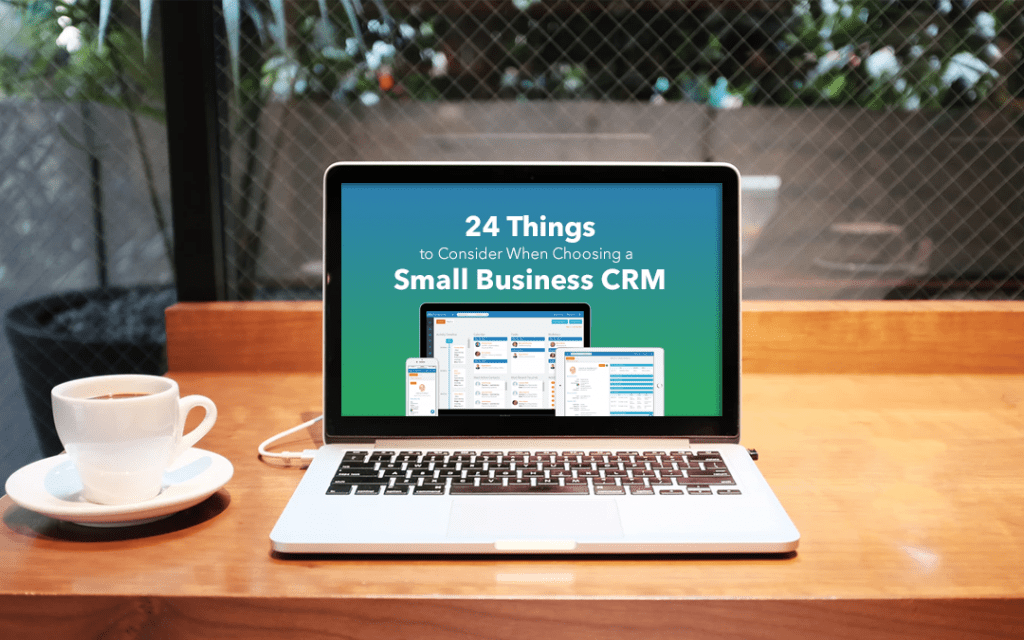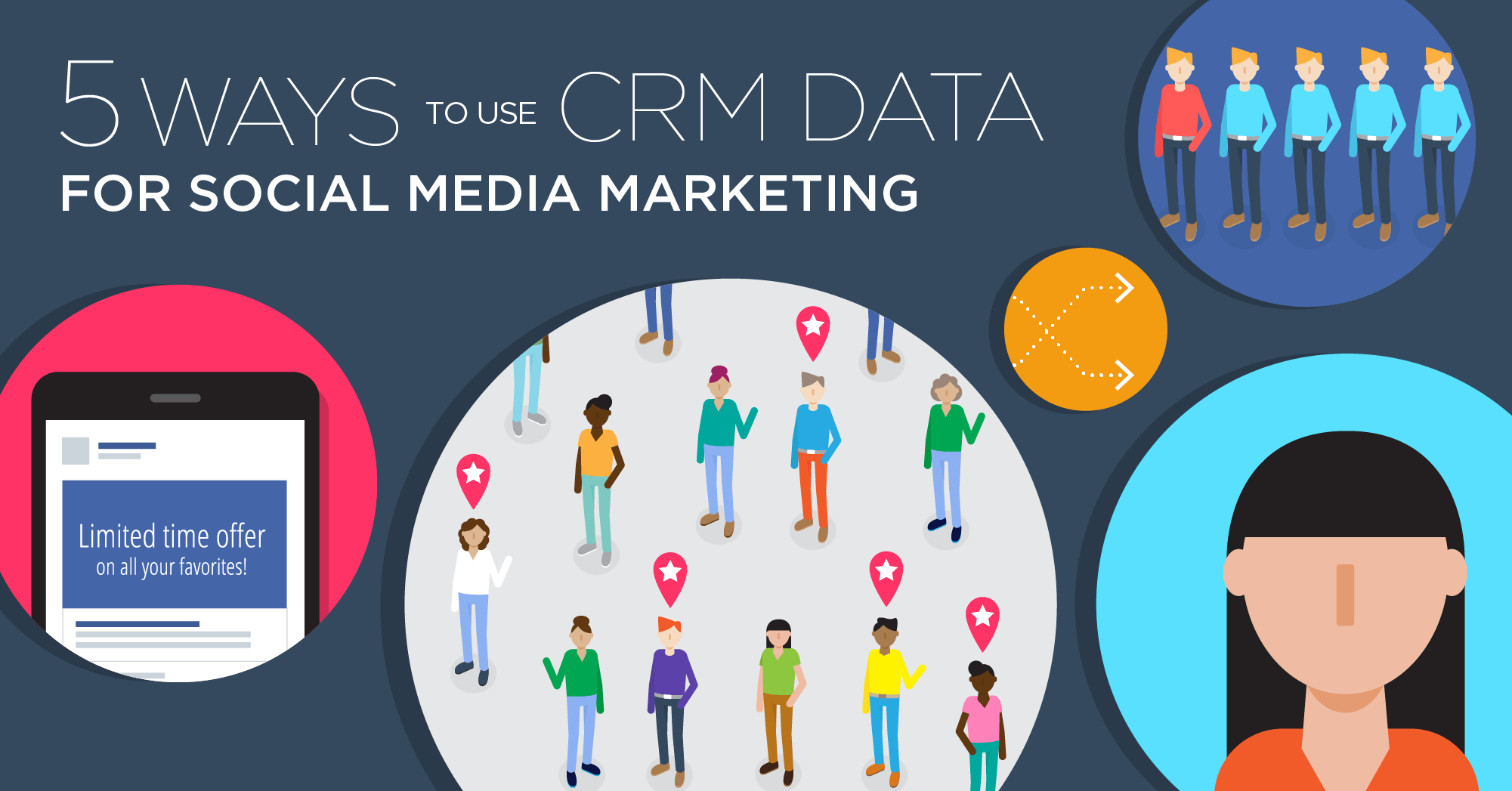Unlock Growth: The Ultimate Guide to Small Business CRM Solutions in 2024

Unlock Growth: The Ultimate Guide to Small Business CRM Solutions in 2024
Running a small business is a whirlwind of activity. You’re juggling everything from product development and marketing to customer service and finances. In the midst of this chaos, keeping track of your customers – who they are, what they need, and how they interact with your business – can feel like an impossible task. That’s where a Customer Relationship Management (CRM) solution comes in. It’s not just for big corporations; in fact, a CRM can be a game-changer for small businesses, helping them streamline operations, boost sales, and build lasting customer relationships. This comprehensive guide dives deep into the world of small business CRM solutions, exploring their benefits, features, and how to choose the perfect one for your unique needs.
What is a CRM and Why Does Your Small Business Need One?
At its core, a CRM is a system that helps you manage your interactions with current and potential customers. It’s a centralized hub where you can store all your customer data, track communications, and automate various tasks. Think of it as your business’s memory, helping you remember important details and personalize your interactions. But why is this so crucial for a small business? Here’s why:
- Improved Customer Relationships: A CRM allows you to understand your customers better. By tracking their preferences, purchase history, and communication logs, you can tailor your interactions to their individual needs. This leads to happier customers and increased loyalty.
- Increased Sales: CRM systems help you identify and nurture leads, track sales opportunities, and close deals more effectively. Features like sales pipeline management and automated follow-ups can significantly boost your sales conversion rates.
- Enhanced Efficiency: Automating repetitive tasks, such as data entry and email marketing, frees up your time to focus on more strategic activities. This can lead to significant time and cost savings.
- Better Data Analysis: CRM solutions provide valuable insights into your customers and sales processes. You can track key metrics, identify trends, and make data-driven decisions to improve your business performance.
- Improved Collaboration: CRM systems make it easier for your team to collaborate and share customer information. This ensures everyone is on the same page and can provide consistent customer service.
Key Features to Look for in a Small Business CRM
Not all CRM solutions are created equal. The right one for your business will depend on your specific needs and goals. However, there are several core features that are essential for most small businesses:
1. Contact Management
This is the foundation of any CRM. It allows you to store and manage all your customer contact information in one centralized location. Key features include:
- Contact Profiles: Detailed profiles that include contact information, company details, and any other relevant information.
- Segmentation: The ability to segment your contacts based on various criteria, such as demographics, purchase history, or engagement level.
- Data Import/Export: Easy import and export of contact data from other sources, such as spreadsheets or email marketing platforms.
2. Sales Automation
Sales automation features help you streamline your sales process and close deals more efficiently. Look for:
- Lead Management: Tools to capture, track, and nurture leads throughout the sales cycle.
- Sales Pipeline Management: A visual representation of your sales pipeline, allowing you to track the progress of deals and identify potential bottlenecks.
- Task Automation: Automated reminders, follow-up emails, and other tasks to keep your sales team on track.
- Deal Tracking: Track deals from start to finish, including estimated revenue, close dates, and stage of the sales process.
3. Marketing Automation
Marketing automation features help you automate your marketing efforts and nurture leads. Key features include:
- Email Marketing: Tools to create and send targeted email campaigns.
- Lead Scoring: Assigning points to leads based on their behavior and engagement, helping you prioritize your efforts.
- Segmentation: Segmenting your audience based on various criteria to send targeted messages.
- Landing Page Creation: Easy to build landing pages to capture lead information.
4. Customer Service and Support
Good customer service is essential for any business. CRM features can help you provide excellent support:
- Ticket Management: A system for tracking and resolving customer support requests.
- Knowledge Base: A central repository of helpful articles and FAQs that customers can access.
- Live Chat Integration: Integrate live chat functionality to provide immediate support.
5. Reporting and Analytics
Data-driven insights are crucial for making informed decisions. Look for:
- Customizable Dashboards: Dashboards that provide a real-time overview of your key metrics.
- Reporting Tools: Generate reports on sales, marketing, and customer service performance.
- Data Visualization: Visual representations of your data to help you identify trends and patterns.
6. Integrations
The ability to integrate with other tools you use is crucial. Look for integrations with:
- Email Marketing Platforms: Such as Mailchimp, Constant Contact, or Campaign Monitor.
- Accounting Software: Such as QuickBooks or Xero.
- Social Media Platforms: For social media monitoring and engagement.
- Other Business Tools: Such as project management software or e-commerce platforms.
Top CRM Solutions for Small Businesses
Choosing the right CRM can feel overwhelming. To help you get started, here are some of the top CRM solutions specifically designed for small businesses, along with their key strengths:
1. HubSpot CRM
Key Strengths: Free CRM with powerful features, user-friendly interface, excellent marketing automation capabilities, strong integrations.
HubSpot’s free CRM is a popular choice for small businesses due to its ease of use and comprehensive features. It offers a robust set of tools for contact management, sales automation, and marketing automation. The free plan is surprisingly generous, making it a great option for businesses just starting out. As your business grows, you can upgrade to paid plans for more advanced features and functionality. HubSpot is known for its user-friendly interface, making it easy for even non-technical users to get up and running quickly. The platform also boasts excellent marketing automation capabilities, allowing you to nurture leads and personalize your customer interactions. Furthermore, HubSpot integrates seamlessly with a wide range of other business tools, including email marketing platforms, social media platforms, and more.
2. Zoho CRM
Key Strengths: Affordable, customizable, strong sales automation features, excellent customer support.
Zoho CRM is a versatile and affordable CRM solution that caters to the needs of small businesses. It offers a wide range of features, including contact management, sales automation, marketing automation, and customer support. Zoho CRM is highly customizable, allowing you to tailor the platform to your specific business processes. It also offers strong sales automation features, helping you streamline your sales pipeline and close more deals. Zoho CRM is known for its excellent customer support, providing you with the assistance you need to get the most out of the platform. Zoho offers various pricing plans, making it accessible to businesses of all sizes. The platform’s robust features and affordability make it a compelling choice for small businesses seeking a comprehensive CRM solution.
3. Pipedrive
Key Strengths: Sales-focused, visual sales pipeline management, user-friendly, easy to set up and use.
Pipedrive is a sales-focused CRM designed to help you manage your sales pipeline and close more deals. Its visual interface makes it easy to track the progress of your deals and identify potential bottlenecks. Pipedrive is known for its user-friendly interface and ease of setup, making it a great option for businesses that want to get started quickly. The platform offers a range of features, including lead management, sales pipeline management, and deal tracking. Pipedrive’s simplicity and focus on sales make it an ideal choice for businesses that prioritize sales performance. The platform’s intuitive design allows sales teams to easily visualize their sales process and identify opportunities for improvement. Pipedrive’s focus on sales productivity makes it a powerful tool for any small business looking to accelerate its growth.
4. Freshsales
Key Strengths: Affordable, integrates with other Freshworks products, excellent customer service features, user-friendly.
Freshsales, from Freshworks, is another great option for small businesses. It offers a comprehensive suite of features at an affordable price point. Freshsales integrates seamlessly with other Freshworks products, such as Freshdesk (for customer support) and Freshchat (for live chat). The platform offers excellent customer service features, making it easy to manage customer interactions and provide excellent support. Freshsales is also known for its user-friendly interface and ease of use. The platform’s affordability and focus on customer service make it a popular choice among small businesses. It’s a well-rounded CRM that can handle both sales and customer service needs effectively.
5. Agile CRM
Key Strengths: Affordable, all-in-one platform, marketing automation features, easy to use.
Agile CRM is an all-in-one platform that offers a comprehensive suite of features, including contact management, sales automation, marketing automation, and customer service. It’s a cost-effective solution that’s well-suited for small businesses. Agile CRM is known for its user-friendly interface and ease of use. The platform’s marketing automation features allow you to nurture leads and personalize your customer interactions. Agile CRM’s all-in-one approach makes it a convenient and efficient solution for businesses that want to manage all their customer-related activities in one place. Agile CRM’s focus on usability and affordability makes it a solid choice for businesses seeking a comprehensive CRM solution.
How to Choose the Right CRM for Your Small Business
With so many options available, choosing the right CRM can feel daunting. Here’s a step-by-step guide to help you make the right decision:
1. Define Your Needs
Before you start evaluating CRM solutions, take some time to identify your specific needs and goals. Consider the following:
- What are your primary business objectives? (e.g., increase sales, improve customer satisfaction, streamline operations)
- What are your current pain points? (e.g., difficulty tracking leads, lack of customer insights, inefficient sales processes)
- What features are essential for your business? (e.g., contact management, sales automation, marketing automation)
- How many users will need access to the CRM?
2. Research and Compare Options
Once you have a clear understanding of your needs, start researching different CRM solutions. Read reviews, compare features, and check pricing. Consider the following:
- Ease of Use: Is the platform user-friendly and easy to navigate?
- Features: Does the platform offer the features you need?
- Integrations: Does the platform integrate with your existing tools?
- Pricing: Is the pricing affordable for your budget?
- Customer Support: Does the vendor offer good customer support?
3. Try Free Trials and Demos
Most CRM vendors offer free trials or demos. Take advantage of these opportunities to test out the platform and see if it’s a good fit for your business. This will give you a hands-on experience and allow you to evaluate the platform’s usability and features.
4. Consider Scalability
Choose a CRM solution that can grow with your business. As your business expands, you’ll likely need more features and functionality. Make sure the CRM you choose can accommodate your future needs.
5. Get Your Team Involved
Involve your team in the decision-making process. Get their feedback on the different CRM options and ensure they are comfortable with the platform. Their input is crucial to ensure the CRM is adopted successfully.
6. Implement and Train
Once you’ve chosen a CRM, implement it carefully. Migrate your data, set up the system, and train your team on how to use it. Proper training is essential to ensure your team can effectively use the CRM and achieve its full potential.
Tips for Successful CRM Implementation
Implementing a CRM is a significant undertaking. Here are some tips to ensure a smooth and successful implementation:
- Start Small: Don’t try to implement everything at once. Start with the core features and gradually add more functionality.
- Clean Your Data: Before importing your data, clean it up to ensure accuracy.
- Customize the System: Customize the CRM to match your business processes.
- Provide Ongoing Training: Provide ongoing training and support to your team.
- Monitor and Evaluate: Regularly monitor your CRM usage and performance, and make adjustments as needed.
- Get Buy-In: Ensure your team understands the benefits of the CRM and is committed to using it.
The Future of CRM for Small Businesses
The CRM landscape is constantly evolving. Here are some trends to watch out for:
- Artificial Intelligence (AI): AI is being used to automate tasks, personalize customer interactions, and provide valuable insights.
- Mobile CRM: Mobile CRM solutions are becoming increasingly popular, allowing businesses to access customer data and manage their sales processes on the go.
- Integration with Social Media: CRM systems are increasingly integrating with social media platforms, allowing businesses to monitor social media activity and engage with customers.
- Focus on Customer Experience: CRM systems are increasingly focused on providing a seamless and personalized customer experience.
The future of CRM for small businesses is bright. As technology continues to evolve, CRM solutions will become even more powerful and accessible, helping small businesses thrive in a competitive marketplace.
Conclusion
Implementing a CRM solution can be a transformative step for your small business. By choosing the right CRM and implementing it effectively, you can streamline your operations, boost sales, and build lasting customer relationships. Take the time to research your options, define your needs, and get your team involved in the process. With the right CRM in place, you’ll be well-equipped to unlock growth and achieve your business goals.



